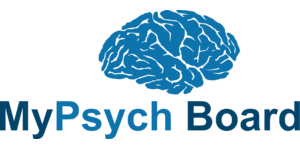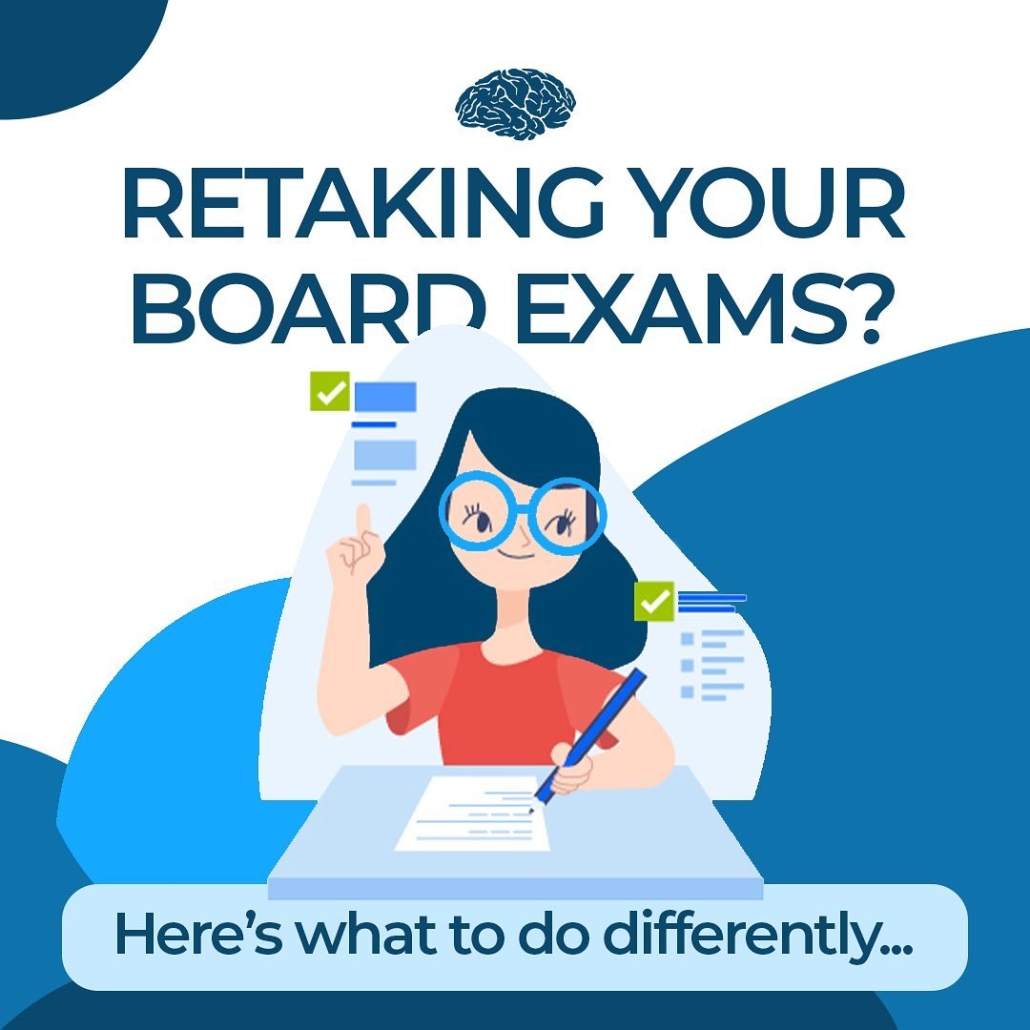The time has finally come… you’re locked in, ready to go, and you’re going to ace your retake exam. Why? Because you’ve followed our TOP 5 tips that ensure your success in passing your Psychiatric Board Exam with ease!
1 – Analyze Your Weak Points
If you know where you struggled with most in the last board exam you can hone in on intaking as much information as you can retain. These don’t need to just be areas you did pool on previously, but could also be ones that could be further reinforced. Try out My Psych Board’s customizable tests that zero in on your most missed questions!
2 – Focus On The NOW
The past is the past, there’s no point in going back! The only way to move in a positive direction is forward. Learn from your mistakes and how you can apply what you’ve learned for better-guaranteed results. If you stay focused on past failure it’s only going to bring negativity and additional stress to your study sessions.
3 – Create A Plan
When studying it’s essential to make the most of your time. Create a plan tailored to your needs. Before you can even begin studying you need to make sure you have all the resources you need. Organize items into folders, check you have all the materials you need, and tidy up your study spot.
4 – Utilize Detailed Questions Banks (like ours here)
With detailed Q-Banks, you’ll get the blueprints, questions, detailed information, vignettes, and more! Within the question breaks, you can get real-time feedback on correct answers, and learn where you’ll need to continue to improve.
BONUS TIP: Did you know we offer FREE Trials of all of our Question Banks? Click here to try today (with no credit card required…)
5 – Take Regular Breaks
As with anything don’t overdo it, You need to ensure you aren’t pushing yourself too far! When you’re studying and preparing for the exam you’re taking a mental health break. This will help break up your studying time, keep you from feeling overwhelmed, and ensure you’re retaining all the information you’re taking in.
Still, feeling uneasy? Contact us and we can help YOU pass your boards with ease!




New Year, New Opportunities!
/in Board Prep, Health and Wellness, StudyingA new year is here, ripe with new opportunities to seize! While it’s true that resolutions have little impact on our yearly productivity (see our blog here about that exact topic), there’s no harm in taking a full inventory of what you want to get accomplished this year.
There’s a sense of possibility during the first month of a new year. A worthwhile activity is to write out a roadmap of what you want to do in the next 12 months, then break down those goals into smaller steps. Ask yourself what it would take to achieve those steps, and make yourself a detailed “how-to” list to get it done.
Writing out our goals, as well as our stresses, has a therapeutic impact on our well-being. While you’re making your roadmap of amazing goals you want to hit, make another list of everything causing you stress and discomfort right now. Then ask yourself, what would it take to remove or alleviate the stress this issue is causing? Write it out. Soon you’ll have a “how-to” list of not only how to achieve your goals and increase your sense of success, but also how to mitigate your current stresses (or at least feel a little more in control by naming them out on paper).
These types of practices tend to get put by the wayside after the novelty of the new year wears off. It’s well worth your time to check in often with yourself to see how you’re progressing toward your goals. Movement can’t happen unless you start the motion!
Is your goal this year to become board certified or pass a looming exam? Maybe you need to apply for observerships to clock in your residential observer hours. Or maybe you want to get better at studying and prepping for exams you know you have to take regularly (PRITE, anyone?) If any of those are the case, we can help!
Contact us with any questions you have, or to inquire about our tailored tutoring packages! Another step you can take is check out our Question Banks, useful for test prepping, study enhancing, and confidence boosting! The new year is here for the taking, so let’s start it together!
How To Manage Stress
/in Health and WellnessStress is a part of everyone’s life. No matter where or who you are, you can’t get away from it. While stress is not intrinsically bad, when you don’t have coping skills it can wreak havoc on your life and wellbeing. Some stress is adaptive and helpful, like the nudge that gets you to crack open your textbooks and study for the exam coming up. But when it becomes overwhelming and unmanageable, it’s time to look at some options for help.
High Stress = Sympathetic Takeover
You might not realize it, but when you’re experiencing high levels of stress, your sympathetic nervous system gears up and causes your body to enter “fight or flight/freeze”. This in turn leads to high levels of cortisol and adrenaline being released, your heart rate and blood pressure increase, and your prefrontal cortex takes a back seat to other areas of the brain, such as the hindbrain. Your body and brain are looking for a threat in your environment to eliminate, run away from, or freeze to avoid. When the stresses you are dealing with are not tactile, you can be stuck in this state for long periods of time. This wears your body down, creates mental fatigue, and keeps you from thriving.
Something that can make a profound difference in how stress effects your life is your ability to emotionally regulate. The process of regulation works by calming your nervous system. It takes your body out of sympathetic nervous system control, and gives part of it back to the parasympathetic system. When this occurs, your body relaxes, your breathing, heart rate, and blood pressure stabilize, and your prefrontal cortex is able to take primary control for executive functioning. So how does one regulate?
Emotional Regulation = Parasympathetic involvement
It seems like it should be a no-brainer, but almost everyone has to learn how to regulate themselves at some point. Regulation requires full neurological functioning, that is, children who are still undergoing high levels of neural development are unable to achieve self-regulation on their own. Adults, however, even if they were never explicitly taught how to, are able to do this with some intentionality. Methods can be as simple as stopping when you notice your emotions are running high, naming what you feel, and validating that feeling.
Other ways to regulate in a heightened state are to stop, close your eyes, and take deep breaths. Intentional calming of the body and nervous system brings the parasympathetic nervous system back online, which helps you take rational stock of what is happening.
When you’re not in the middle of crisis, it’s helpful to be proactive in managing stress. This can involve talk therapy (a counselor or a trusted friend) to work through an ongoing issue; it can be journaling to identify what triggers your emotions into running wild; it can be engaging in exercise to work off steam when there are things out of your control.
Emotional regulation is an important part of wellbeing that everyone should be aware of, even if they are unable to achieve it all the time. Working toward being able to take control over your emotional state is a worthwhile goal, and one that should be at the top of your list if this is something you struggle with. Additionally, asking for help is a great step towards helping yourself.
Coping with stress can help your physical and mental health. If you want to talk with someone about this topic further, contact us for more information! Your wellbeing is worth it.
Observership Options for Residents
/in Board Prep, StudyingPractice makes perfect. And as a resident, observership, or hands-on experience, is paramount in your education to become a practitioner. Finding a good fit can be challenging, but My Psych Board has options for you!
Medical students and international medical graduates seeking US clinical experience may apply to our Clinical Observership program. This may be in person at the clinic in Westlake, OH, or it can be accomplished via Telehealth!
During the Clinical Observership, participants will interact with Dr. Abdel and learn about the US healthcare system.
Observerships range in duration from three weeks to a maximum of three months. During this time, participants will have the opportunity to observe a wide range of experiences from patient care to mastering high yield points on the USMLE exams, and will earn a letter of recommendation for future residency applications.
My Psych Board also covers summaries of clinical treatment and psychopharmacology. We offer valuable electives for medical students who are preparing for the USMLE and residency.
We understand the difficulties surrounding the search for high quality, valuable, hands on experience. And we want to make sure you succeed in your training! When you join our observership/preceptorship program you will also receive a 15% discount to any question bank of your choice from My Psych Board.
If this is something you still need to check off your list, contact us for more information! And to take advantage of the 15% discount, you can also check out a sample of our question banks using our Free Trial to decide what option fits your needs best. We’re just a click away to help you take the next step!